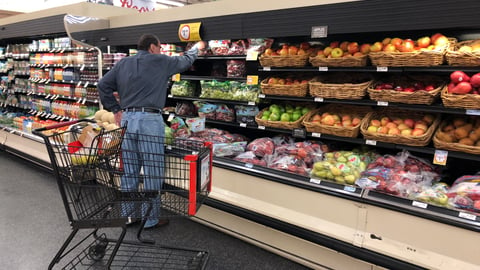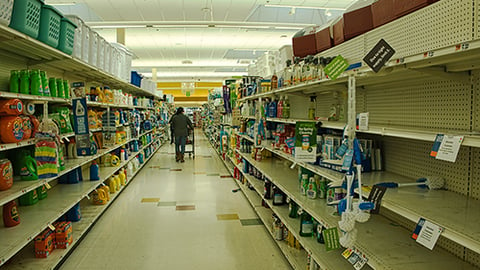NRF Urges Trump to Clarify Retail Closures
The National Retail Federation (NRF) is asking President Trump to clarify which stores are considered "essential retail" amid the COVID-19 outbreak.
"Clear national guidance is needed to resolve questions caused by a number of conflicting state and local orders that are triggering consumer, worker and business confusion, leading to cascading negative impacts on communities across the country," wrote Matthew Shay, CEO of Washington, D.C.-based NRF, in a letter to the White House. "Our members report that towns, cities and counties are deviating from instructions offered by governors and state agencies."
The letter goes on to detail several of the problems retailers are currently facing, including:
- Some localities have determined that pet stores, which provide pet food and medicines, are not “essential,” despite the millions of pet owners who rightfully need specialty supplies for their pets' well-being
- Several jurisdictions have overlooked the important role distribution centers and transportation logistic companies play in the retail industry. Retailers, grocers and restaurants can't resupply without access to their distribution centers
- Truck drivers and logistics companies need access to federal and state highway rest areas. Regrettably, some states have chosen to close rest areas they control while setting overly stringent curfews on these critical workforces serving communities
- When state and local governments give blanket orders to “close nonessential retail” and “limit mass gatherings to 50 people,” it causes panic and alarm. Consumers then swarm retailers, which exhausts existing supplies and overwhelms employees. Long lines also defeat the purpose of "social distancing"
In addition, NRF is asking that the federal government issue guidance to clarify “essential retail businesses” at a national level, using the following examples:
- Grocery stores, convenience stores and other establishments engaged in the retail sale or provision of food, pet supply, big-box stores, wholesale clubs, and any other retailer of household consumer products (such as cleaning and personal care products). This includes stores that sell groceries and other non-grocery products, and products necessary to maintain the safety, sanitation and essential operation of residences
- Local, regional and national transportation and delivery services, including but not limited to businesses that ship or deliver groceries, food, goods or services directly to residences, and mailing and shipping services
- Facilities supporting interstate delivery of goods, distribution centers, warehouse facilities, and trucking and highway rest stops
- Pharmacy and health care services
- Agricultural and farm retail stores, often the only places to purchase livestock feed, and among the few places where first responders can obtain critical supplies
- Gas stations and auto supply stores, auto repair shops, and related facilities
- Hardware and home improvement stores
- Restaurants and other facilities that prepare and serve food, if operating under rules for social distancing
- Retailers that supply other essential businesses and people working from home with the support or supplies necessary to operate (for example, electronics, telecommunication and mobile technology)
The letter comes on the heels of another letter NRF sent to President Trump and congressional leaders on Wednesday, asking for a direct government-backed loan program to help the industry through the crisis until normal business operations can resume.






